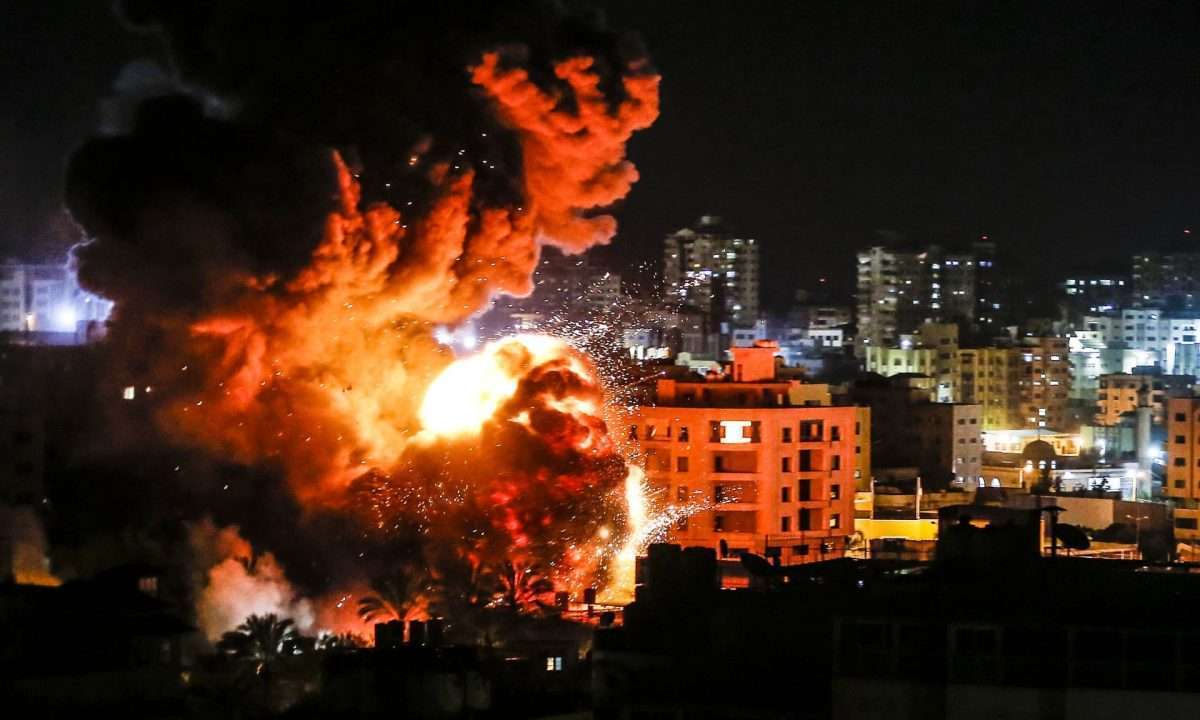Following attacks from Hamas, Israel has imposed a strict blockade on Gaza, leading to an alarming humanitarian situation. Nearly 700 individuals have perished in recent attacks, and thousands are injured. The blockade has resulted in significant shortages of essential supplies including food, fuel, and water.
 by Ali Hassan
by Ali Hassan
The Gaza Strip, housing approximately 2.3 million residents, is on the cusp of a major humanitarian disaster. Israeli officials have imposed stringent sanctions in response to attacks from Hamas, which governs the territory. Israel’s recent declaration of a “total blockade” implies a severe limitation on necessities, including electricity, water, and food.
Local sources revealed that aid hadn’t penetrated Gaza since the previous Saturday. The aftermath of Israeli airstrikes, which claimed nearly 700 lives and injured thousands, is evident in BBC footage showcasing desolate streets littered with ruins of fallen structures.
Approximately 80% of Gaza’s populace relies heavily on humanitarian assistance, predominantly due to persistent conflict with Israel. Although governed by Hamas, Israel retains control over Gaza’s airspace, coastal borders, and the influx of goods and individuals.
Simultaneously, Egypt has also enforced stringent regulations on its border with Gaza. With the onset of recent attacks, Israel has prohibited all forms of supply into Gaza, encompassing essential items like food and medicine.
UN spokesperson Stéphane Dujarric conveyed the severe repercussions of the conflict, highlighting the death and injury of numerous healthcare workers, as well as damage to several medical facilities. He emphasized the pressing concerns surrounding water, sanitation, and electricity, stating that the Gaza Power Plant, the last remaining electricity source, could deplete its fuel reserves within days. He also noted that aid efforts are underway, with the World Food Programme set to amplify its food distribution for displaced Palestinians.
Amidst the ongoing conflict, the region’s inhabitants already grapple with restricted mobility, food scarcity, and limited water access. UNRWA representative Juliet Touma conveyed the palpable terror felt by Gaza’s residents due to the prevailing situation.
Israel’s Defence Minister, Yoav Gallant, reaffirmed the decision of a “total blockade.” The Israeli infrastructure ministry also mandated the immediate discontinuation of water supplies to Gaza. These announcements followed a statement from the Palestinian health ministry, highlighting the dire need for medicines, medical provisions, and fuel in Gaza’s hospitals.
Recent days witnessed Israel intensifying its airstrikes on Gaza. Some of these targeted the eastern border area, from which Hamas initiated its attacks. Although Israel claims to target Hamas facilities, reports suggest civilian casualties.
The Palestinian Ministry of Foreign Affairs revealed that Israeli air raids struck two refugee camps in Gaza, leading to multiple casualties. There were also reports of assaults on a UN school, mosques, and residential structures. The UN verified the school’s damage but denied fatalities. A report by the Associated Press stated that an airstrike in Rafah led to the death of 19 family members.
Recent data indicates the displacement of over 123,538 Gazans due to the ongoing conflict, with many seeking refuge in schools. The UN’s Office for the Coordination of Humanitarian Affairs (OCHA) reported that about 73,000 individuals are currently sheltering in educational institutions.
(Associated Medias | FAD) – All rights reserved.
